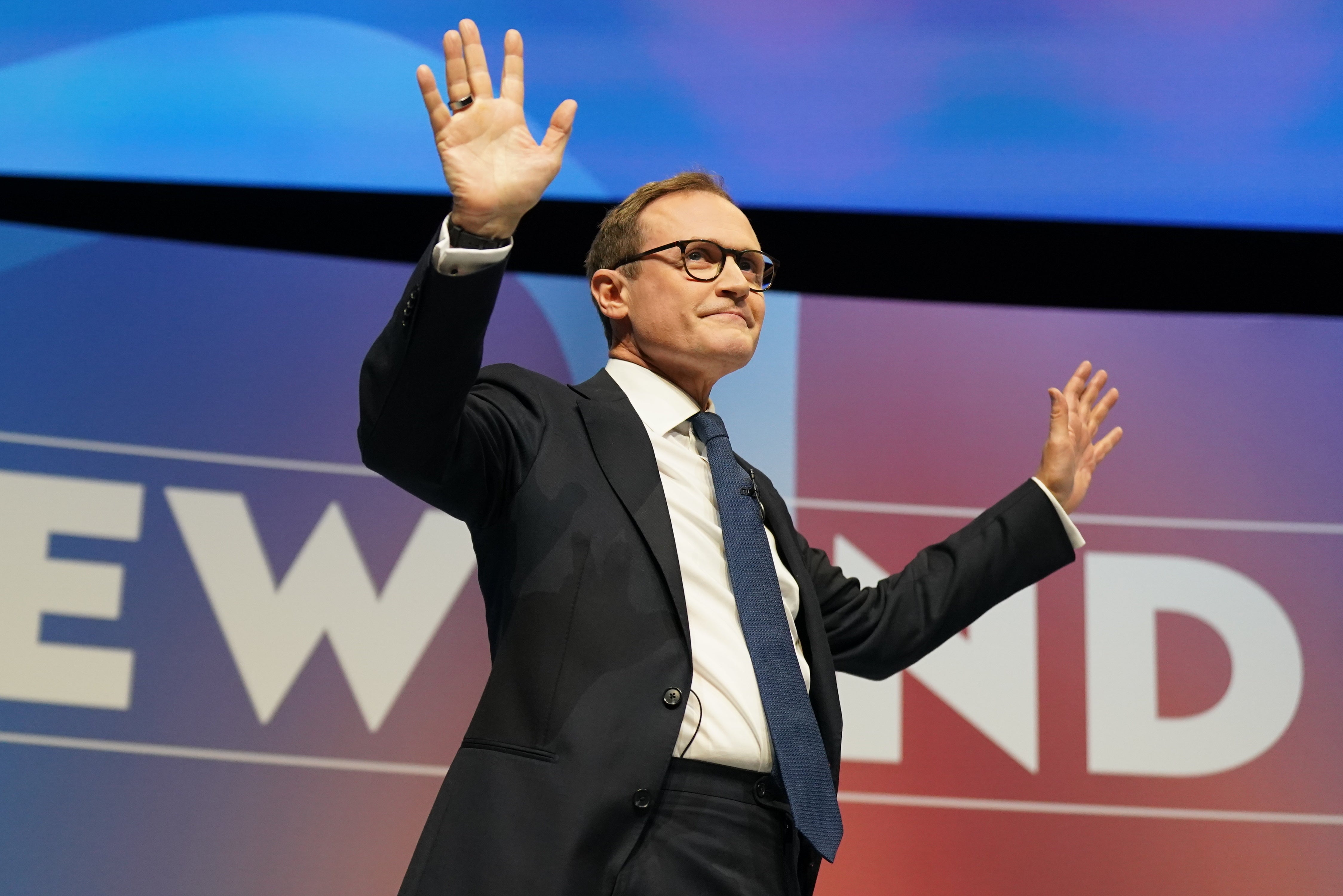What’s next in the Tory leadership race after Tom Tugendhat’s exit?
Sean O’Grady on where it went wrong for the former security minister and what the contest has in store for Kemi Badenoch, Robert Jenrick and new frontrunner James Cleverly


As Tom Tugendhat is knocked out and the Conservative leadership election goes into its final stages, the prospects of the frontrunners have been transformed. After Rishi Sunak lost the election and announced his intention to stand down (eventually), the long campaign has placed all the candidates under intense scrutiny, and, so it seems, badly eroded the apparent early runaway lead enjoyed by Kemi Badenoch. Originally favourite, she may not even make it to the final two names in the members’ ballot, given that most of the Tugendhat vote will transfer to James Cleverly.
Cleverly is now the man to beat – he had an exceptionally good conference and is now surging to be the frontrunner and bookies’ favourite – but Robert Jenrick, a relatively recent convert to the hard-right tendency, is still in with a chance. On the basis of past experience in such leadership contests, there must be some suspicion that Cleverly’s campaign managers will “lend” votes to whoever they judge easier to beat in the last phase – probably meaning that Badenoch will be edged out and Jenrick will make it to the end.
What went wrong for Tom?
Well, at least he saw off rivals Priti Patel, a well-established figure with cabinet experience, and Mel Stride, the “continuity Sunak-Hunt” candidate. He never had much of a realistic chance of winning and, like so many contenders taking a chance in such contests, may be more interested in securing a good job in the shadow cabinet and putting a marker down for “next time”, whenever that may be. (He also ran with similar expectations in 2022.)
As a more traditional One Nation sort of Tory who refuses to apologise for voting Remain in the EU referendum, Tugendhat’s attempts to pass himself off as a bit more right-wing on issues such as leaving the European Convention on Human Rights weren’t entirely convincing. Still, about a half-dozen of his supporters are identifiably of the right and will be fought over by Jenrick and Badenoch, now pretty much neck and neck to be the standard bearer for the right (their respective fates also resting on tactical voting by Cleverly supporters).
What went wrong for Badenoch?
It may be a classic case of the more the Tories saw of her, the less they liked the prospect of having her as leader. Despite her claim that she doesn’t make gaffes because she chooses her words carefully, she’s said some silly things, such as “becoming working class” when she did some shifts at McDonald’s; she also made some rather frightening remarks about waging culture wars and charging for using the NHS. Her views on how maternity leave and pay impact business competitiveness were probably the most destructive to her chances of winning the leadership.
Her direct “radical” approach decrying the recent errors of her party in government is vaguely reminiscent of how Margaret Thatcher won the leadership half a century ago, as is her tendency to sound patronising and dismissive. If she does lose, she may console herself with the thought that the Tory party (or at least its MPs) and the wider British public aren’t yet ready to give up on some uncomfortable facts and inconvenient truths. She is 44, and her time may yet still come.
What next?
Another round of voting to determine the final pair and then the Conservative membership (maybe about 140,000 mostly older and wealthier people) will choose the next leader of the opposition and alternative prime minister. The ballot closes on 31 October (right after the Budget), and the result is to be announced on 2 November. Badenoch looks the more likely to be eliminated.
And then?
If all goes well, the contenders will all unite to form a formidable team dedicated to reviving a united party and take the fight to Labour, the Liberal Democrats and Reform UK with attractive and convincing policies promoted by a charismatic leader.
On the other hand, the membership might well revolt if they’re not allowed to vote for Badenoch because they sense that the MPs have manoeuvred to keep her off the ballot. The activists are angry enough even now that Boris Johnson and Liz Truss (the members’ previous favourites) were ousted by the parliamentary party, and incensed at how Sunak was supposedly foisted on them without consultation in the second leadership contest of 2022. A faction, maybe led by Patel, will demand more power over MPs, policy and the leadership.
The party could become even more difficult to lead for Cleverly, say, if Jenrick and/or Badenoch sulk and whinge, and especially if they stay out of the shadow cabinet “on principle”. In that scenario, the civil war will intensify and they’ll just leave more space for Nigel Farage to fulfil his ambition to be the leader of the “real” opposition. Plus, the new leader will also have to contend with Johnson quietly menacing them and, albeit a less serious distraction, Truss desperately seeking her own comeback. Cleverly – the most likely winner now – may wonder if his colleagues will ever be able to become “more normal”. Next year’s local elections will be an important early test for the new leadership.



Join our commenting forum
Join thought-provoking conversations, follow other Independent readers and see their replies
Comments